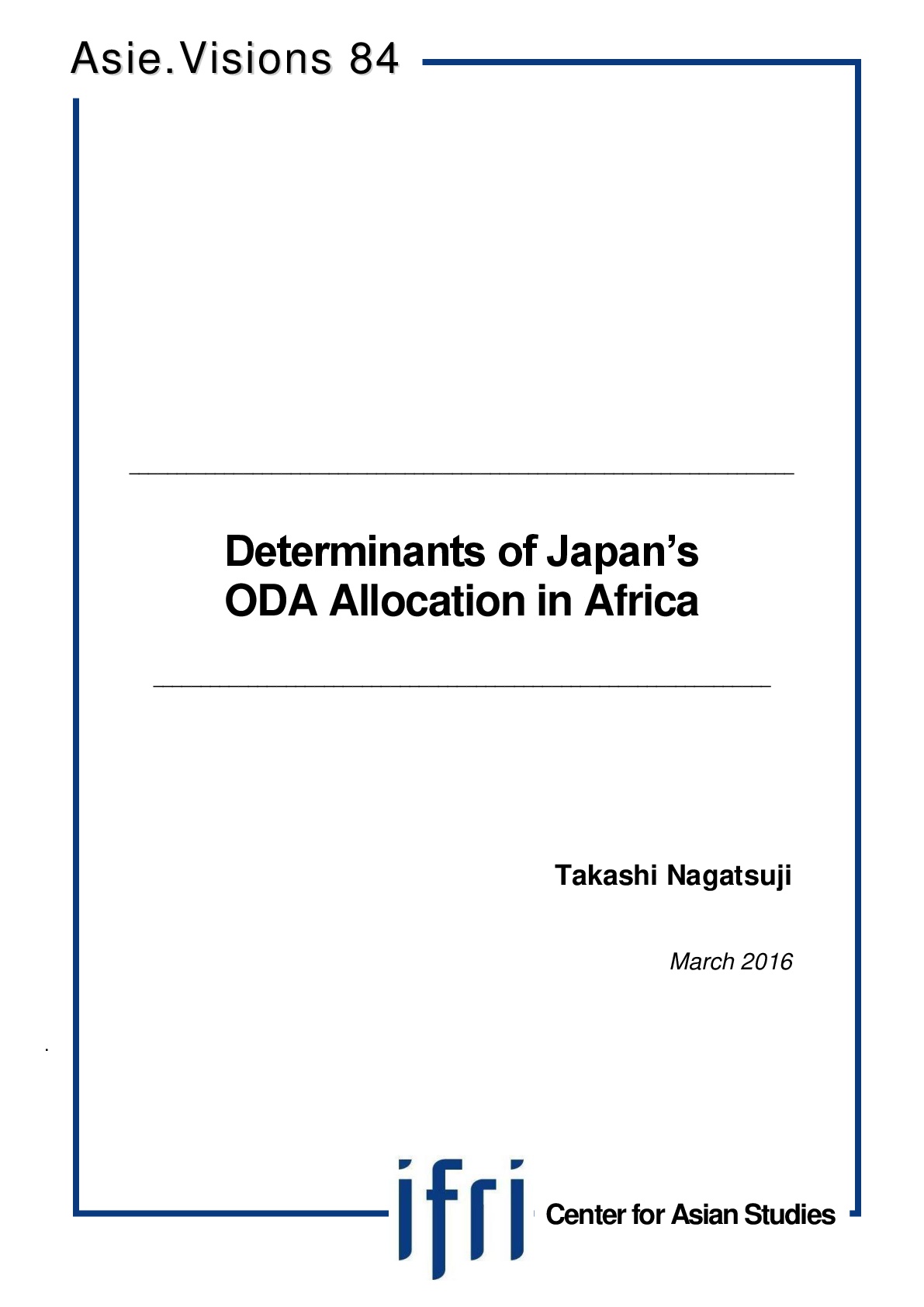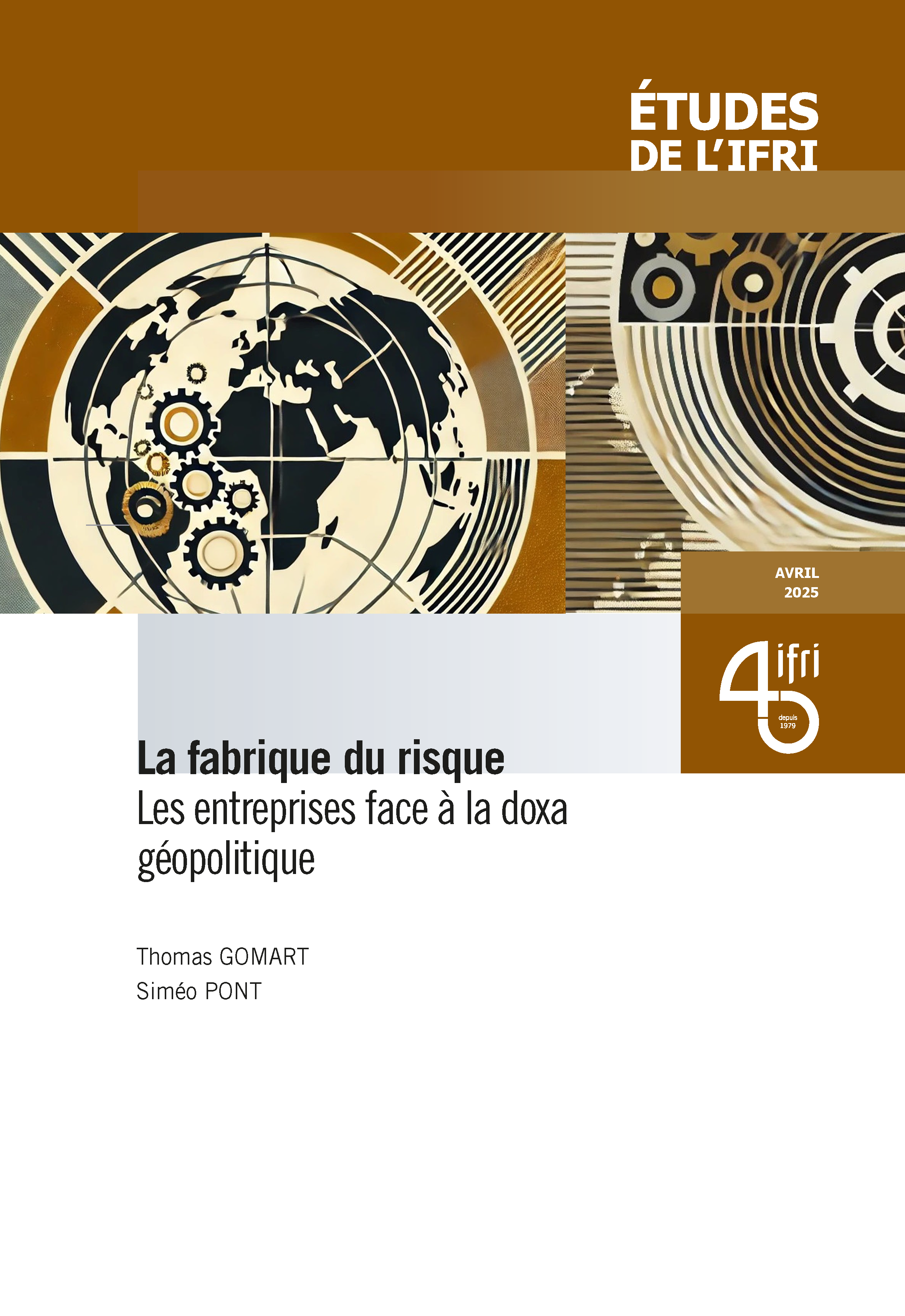Determinants of Japan’s ODA Allocation in Africa

Le débat sur les pays émergents donateurs pose la question du respect par les donateurs traditionnels de leurs propres principes d’aide publique au développement. Ce papier aborde la question en évaluant l’adhésion du Japon à ses propres politiques d’aide publique au développement.
Le papier adopte une méthodologie mixte mêlant analyse historique, analyse statistique et études de cas. L’analyse historique montre que la mise en œuvre de l’aide japonaise a été influencée par des facteurs implicites comme les intérêts nationaux, des facteurs externes liés à des acteurs tiers ainsi que par des facteurs officiels basés sur les principes d’aide publique au développement. L’analyse statistique fait apparaître que les facteurs gouvernant l’allocation des aides japonaises en Afrique sont peu clairs durant la période de formation mais qu’une stratégie est établie après l’introduction de la Charte sur l’Aide publique au développement en 1992. L’analyse met également en exergue, qu’après la révision de la Charte en 2003, le Japon adhère de plus en plus aux principes officiels et que les acteurs tiers comme la Chine influencent les allocations de l’aide du Japon en Afrique. Les études de cas au Sénégal et en Côte d’Ivoire montrent que les élections et le multipartisme augmentent le volume des aides, alors qu’un coup d’état fait chuter ce même volume. L’étude montre enfin que face à la présence croissante de la Chine, le Japon tend à privilégier ses intérêts nationaux dans sa politique d’aide au développement.
Centres et programmes liés
Découvrez nos autres centres et programmes de rechercheEn savoir plus
Découvrir toutes nos analysesAprès la révolution de la mousson, quel avenir politique pour le Bangladesh ?
Entre juillet et août 2024, 36 jours d’un soulèvement sans précédent ont mis fin à quinze ans de règne de Sheikh Hasina.
Accélération de la transition énergétique de l’Inde : le défi de la flexibilité des réseaux au cœur des enjeux
L’Inde augmente rapidement sa capacité en énergies renouvelables (EnR), ajoutant 15 à 20 GW par an, mais l’objectif ambitieux de 500 GW de capacité non fossile d’ici 2030 est menacé si le rythme de déploiement des EnR ne s’accélère pas.

La posture de défense française face aux défis de l'Indo-Pacifique
Le groupe aéronaval (GAN) autour du porte-avions Charles de Gaulle se déploie actuellement dans les eaux de l’Indo-Pacifique. La mission Clémenceau 2025 le conduira dans l’océan Indien et jusqu’en Asie orientale, démontrant la volonté et la capacité de la France de défendre la liberté de navigation et d'accès aux espaces communs.
Le Mexique et le Panama dans la dynamique Indo-Pacifique. Quels enjeux pour la France ?
L’Amérique centrale, théâtre croissant de la rivalité sino-américaine, renferme des enjeux significatifs en termes d’accès à l’espace indopacifique pour la France.











